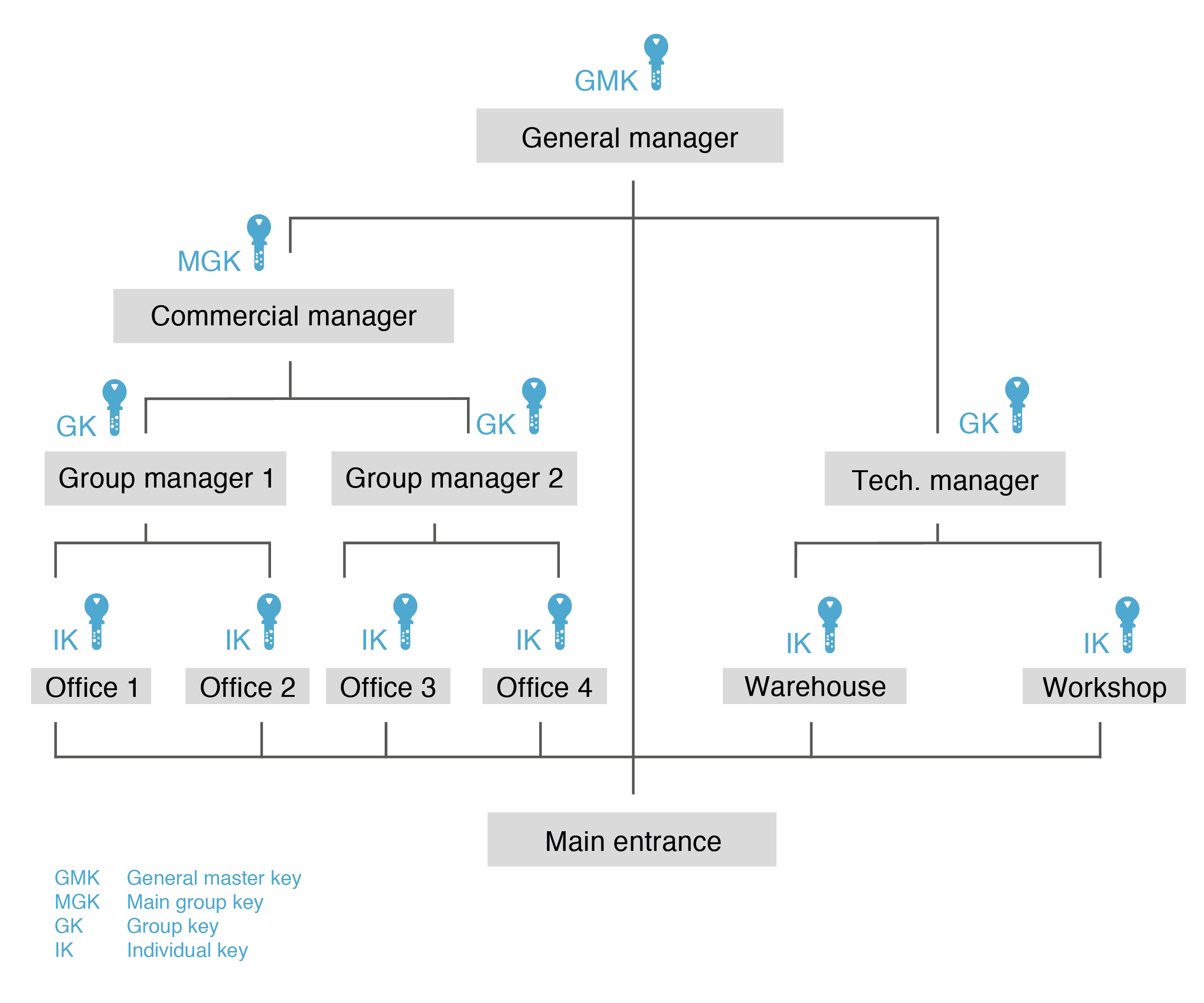Locking system
A locking system is a locking system with several locking cylinders that are functionally related to each other.
Different access rights can be assigned within the buildings. The keys can open individual doors or also different doors (groups). It is possible to integrate electronic cylinders into mechanical locking systems.
There are the following systems types:
Keyed alike cylinders
Keyed alike means that several locking cylinders with the same coding can be locked with only one key.
In a narrower sense, keyed alike cylinders are not actually a locking system because the reference between them is missing.
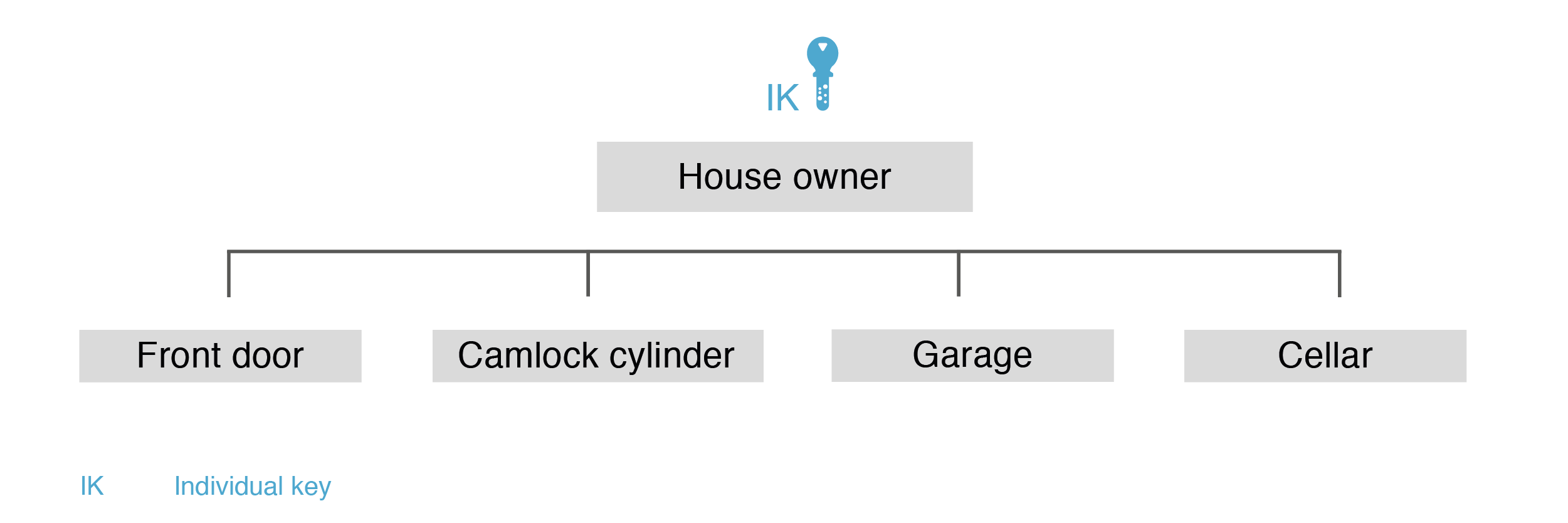
Central key system (CK-system)
By using central cylinders, users can use their key to lock their apartment individually as well as to lock the courtyard gate, front door, cellar, etc. together through central cylinders.
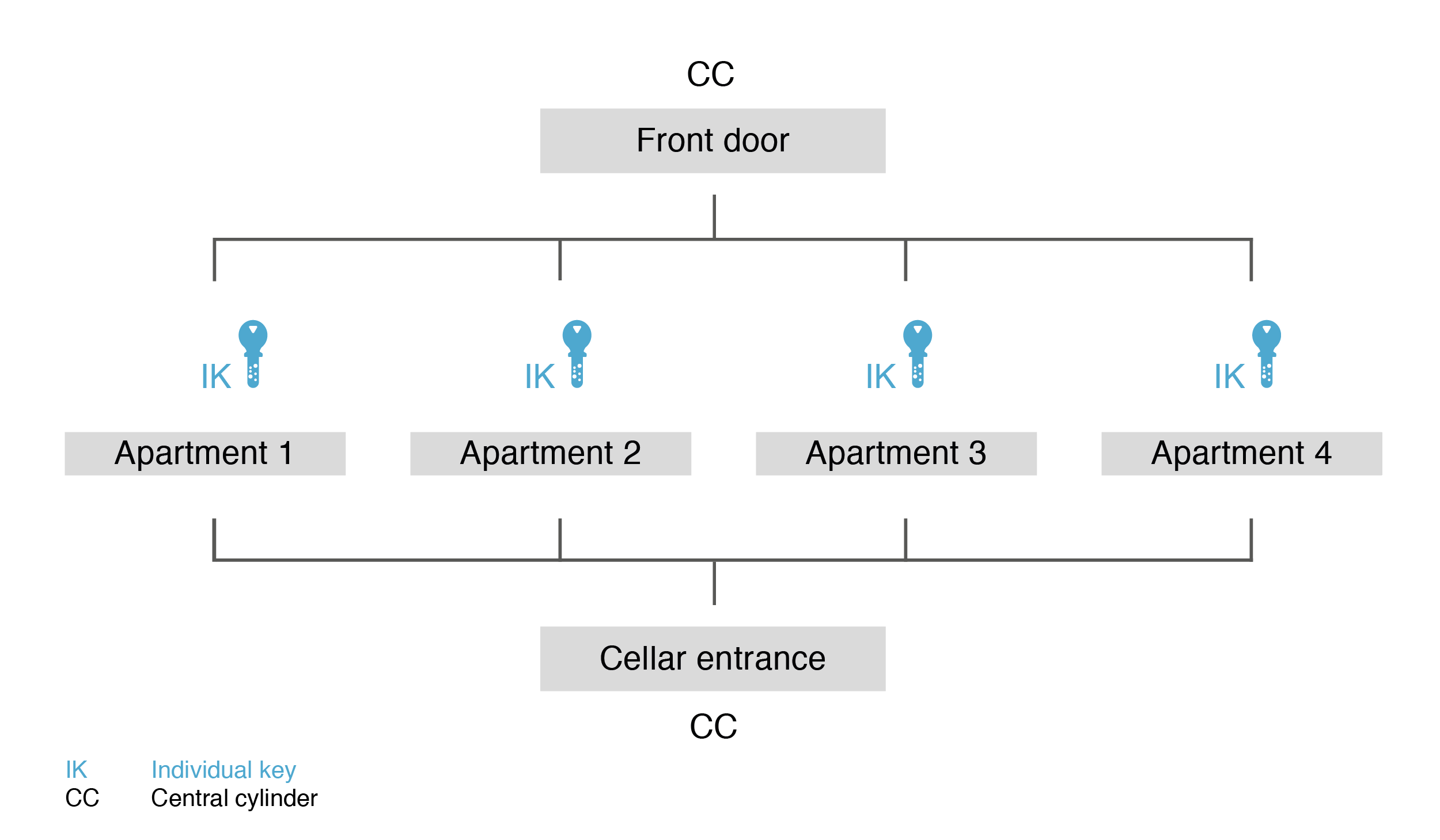
Central master key system (C/MK-system)
In contrast to a purely central key system, a technical master key (MK T) is additionally used here. This technical master key can be used, for example, as a janitor key. In addition to the central doors, it can also lock technical doors (e.g. janitor, heating, elevator rooms, etc.). Apartment doors, however, are excluded from the locking authorization.
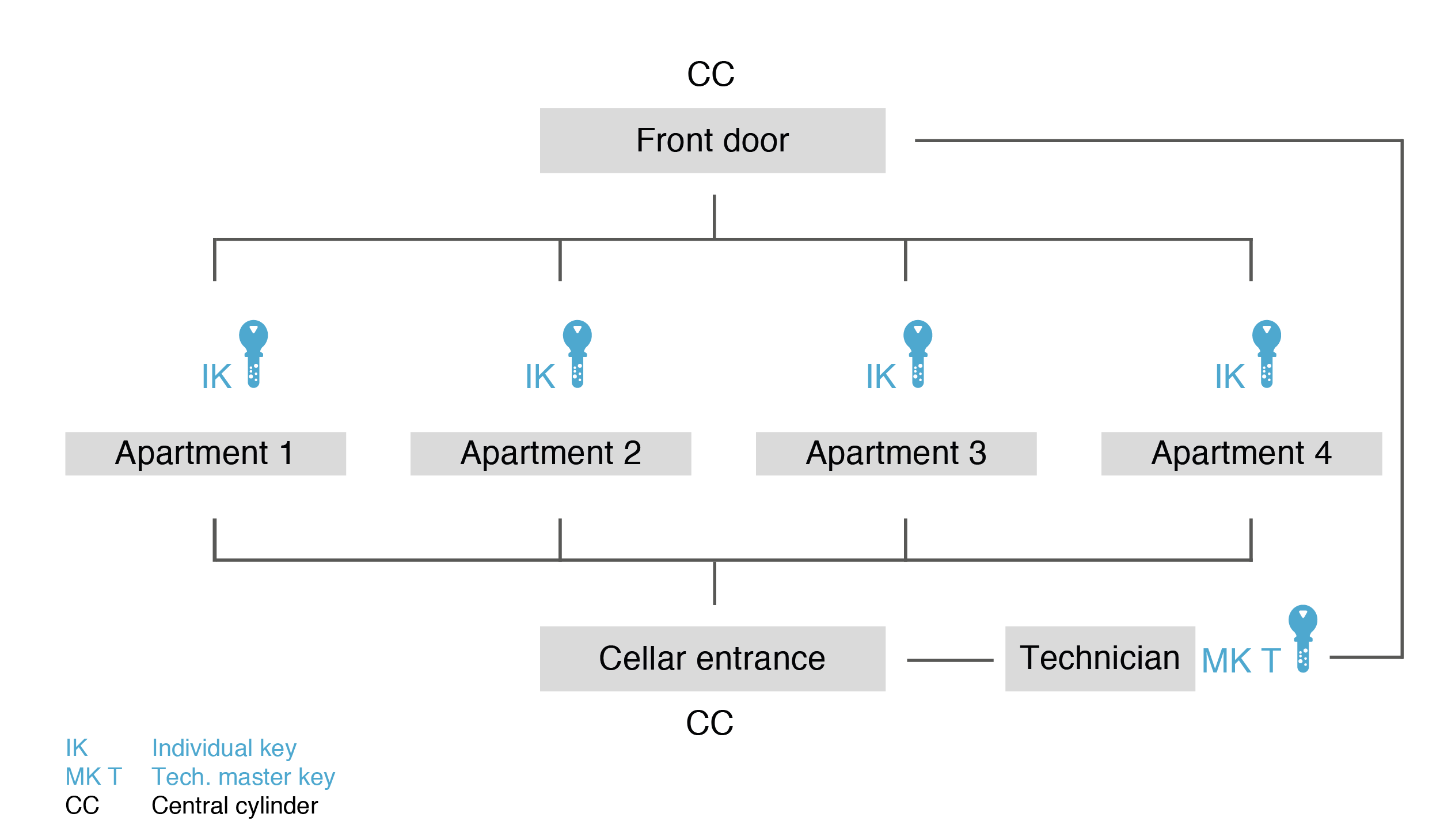
Master key system (MK-system)
A master key system consists of several locking cylinders, each of which is assigned its own key. Each key can open its assigned door. In addition, there is a master key that can open all doors.
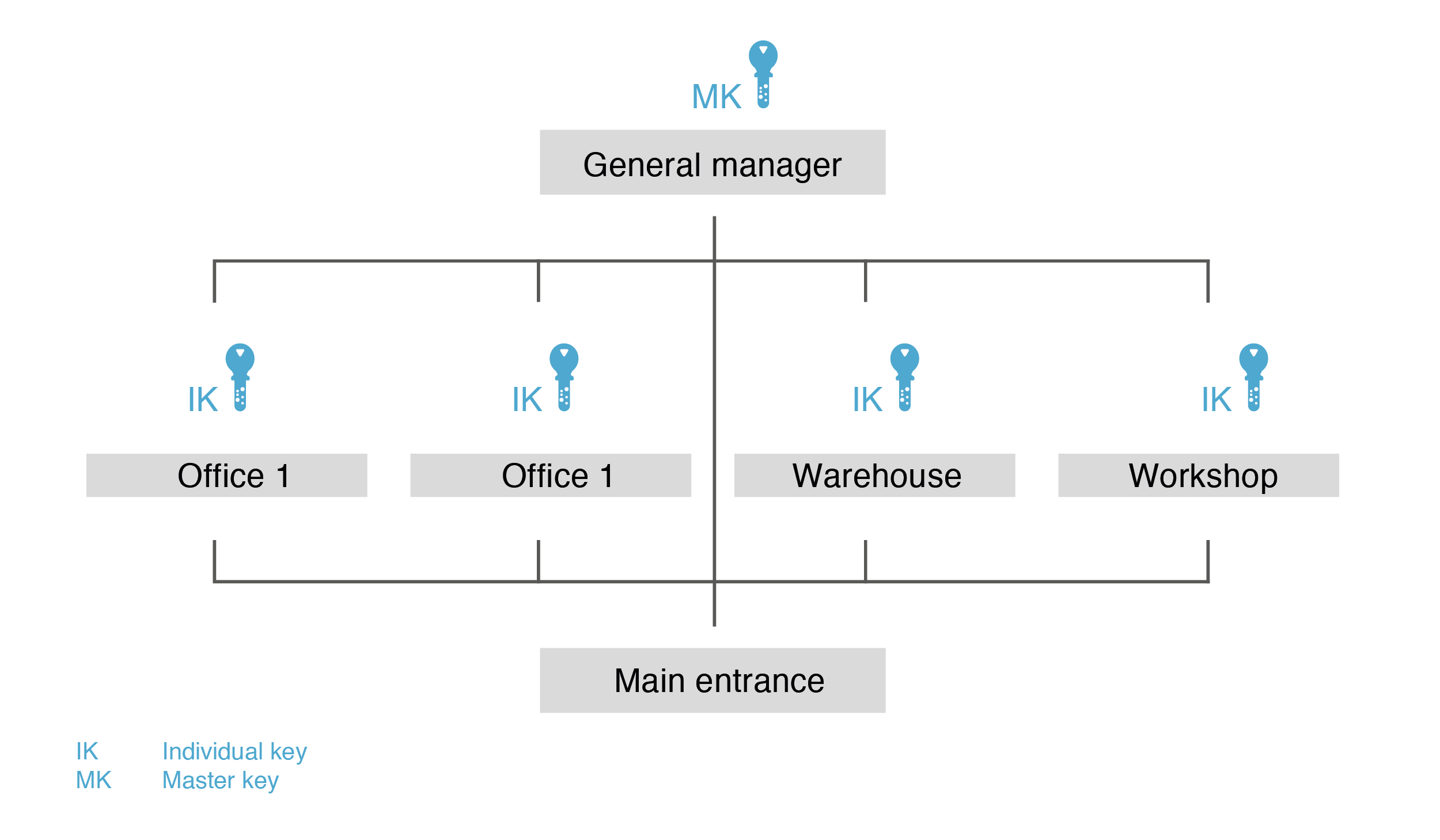
General master key system (GMK-system)
General master key system (GMK system) consist of several master key systems with additional hierarchy levels or authorization levels. Different cylinders can be locked individually or also be combined to groups. In the GMK system, there are system, group and GMK key.
